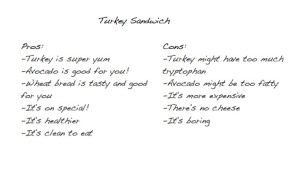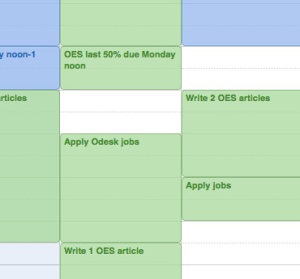OK, with a title like that, I know I’ve created some expectations. So here it is, for your enjoyment:
Now on to the real content. I’ve realized something: I am Jay Gatsby.
The Great Gatsby has been one of my favorite books for years. I first read it, like so many other Americans, in high school, in my junior year English class, and I fell in love with the lushness of F. Scott Fitzgerald’s prose, the elegiac plot, the picture-perfect depiction of the American Dream.
So I’ve read the book. I am the proud owner of a T-shirt printed with its text. I rushed to the theater when, last month, the new Baz Luhrmann version of the film came out, and I read the book again after, just to see how the two compared.
But it wasn’t til recently that I realized why, exactly, I loved The Great Gatsby — and, for all my English major-ing over the years, I have to say it wasn’t why I thought.
It was because I completely, 100% refuse to accept the ending as an ending. Because, optimist that I am, I saw the epic failure of the American Dream presented in the book as a failure, yes — but only for Gatsby. Of course I saw his personal failings; of course I saw the shallow opulence he so blindly followed after; of course I saw that what he was doing was wrong, and could never, and should never, succeed.
For him, that is. But for me? For me, it would be a completely different story.
I still believe in the American Dream. I still picture my future all in rosy hues, with me living the dream of the modern, educated woman in the post-feminist era: married, with kids, and flourishing at the top in my career. I, like so many others in my generation, have grown up being told that I could do anything I wanted, if I just tried.
And I have tried, and so far, it has seemed true. I sailed through college. I found rewarding (though unpaid) internships in my field. I landed a Fulbright scholarship. I traveled. I found at least a steady trickle of paid work in my field. I formed meaningful and loving relationships with some absolutely incredible people.
But the more I look around, the more discouraged I get about the future of my American Dream. I read articles like this one, which bring to my mind my college sociology professor, telling the class that women today absolutely cannot have it all — they always take a cut, either in family life or in professional life. It worried me then, but I pushed it to the side. But if, as recent studies show, even women in “liberal academia” get marginalized for having a family, how much worse must it be in the business community I hope to join?
Because, of course, I must join the business community. I am passionate about the publishing world, to begin with, and want nothing more than to join in; beyond that, though, it is equally important to me to have a career that I love as it is to be able afford to live the life of having a career and a family.
And being able to afford it is the trick: to have it all in today’s society, it’s generally accepted that traditional domestic roles will be, at least in part, hired out to others. Nannies will help with the kids; gardeners will help with the yard work; housecleaners will help with the chores; restaurants will help with the meals. I don’t want to be affluent for affluence’s sake; I want to be affluent so I can have a family as well as a career. As Nancy Folbre put it in her recent article in The New York Times:
Affluent couples are more likely to marry than other Americans, perhaps because they don’t need to renegotiate gender roles; they can purchase substitutes for wives’ traditional domestic work in the form of restaurant meals, child care and cleaning services.
The stakes, for women, are high. The choice is this: Have an incredible career which can support your desire for a family, or forget the idea of a career altogether. All or nothing. No pressure.
This is, I’ve realized, is one of the reasons I love Seattle so deeply: It shows me what my life could look like, if I get it right. I have spent the majority of my time in this city in some of its richest neighborhoods, working as a nanny, providing one of the many services that make it possible for the women here to have everything.
Here I see the rebuttal to the claim that women can’t have everything; here I see women who are succeeding in their careers and in their family. As a nanny, I have seen what a household looks like where both spouses have careers they enjoy and that pay well; I have even had the privilege of seeing families who manage to do that without sacrificing their children’s wellbeing. I’ve seen those who make it into that exclusive club; I’ve seen that it is possible for a woman to have it all.
And I want in. That is my Daisy Buchanon, with money in its voice, ever beckoning me on to an imaginary future. But will it be imaginary? Or will I make it in; find that elusive job that will allow me to work in an industry I love and succeed, even as I, eventually, have a family, too?
Am I as blind as Jay Gatsby, chasing an illusion that can never be caught? Or will I, as I have always chosen to believe, succeed in my pursuit?
Can the American Dream be caught? Is it possible, in today’s society, for a woman to have it all? It is; I have seen it — but will it be possible for me?
These are unanswerable questions, I know. The only way to answer them is to stride forward, pursuing my dreams in the best way I know how — and hope there is no Nick Carraway lurking around the corner, ready to document my hopeless chase.
























